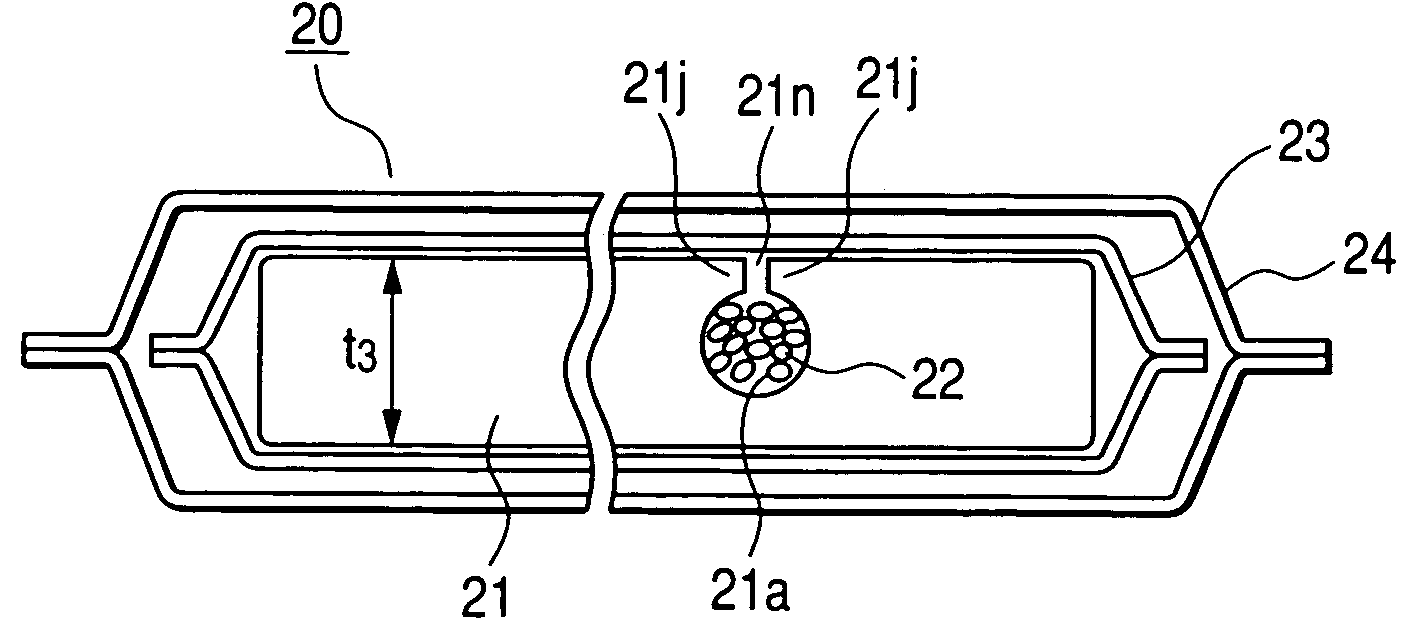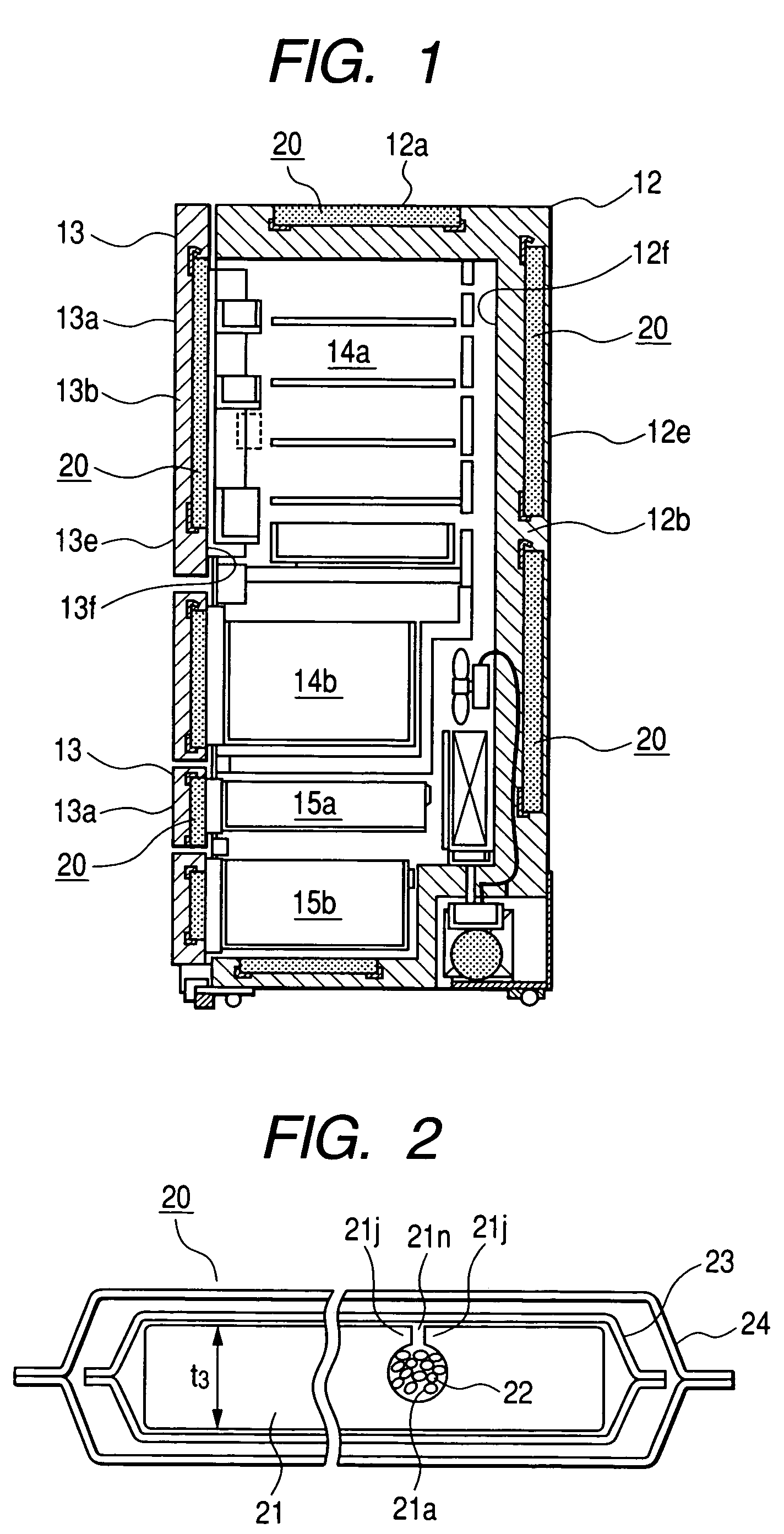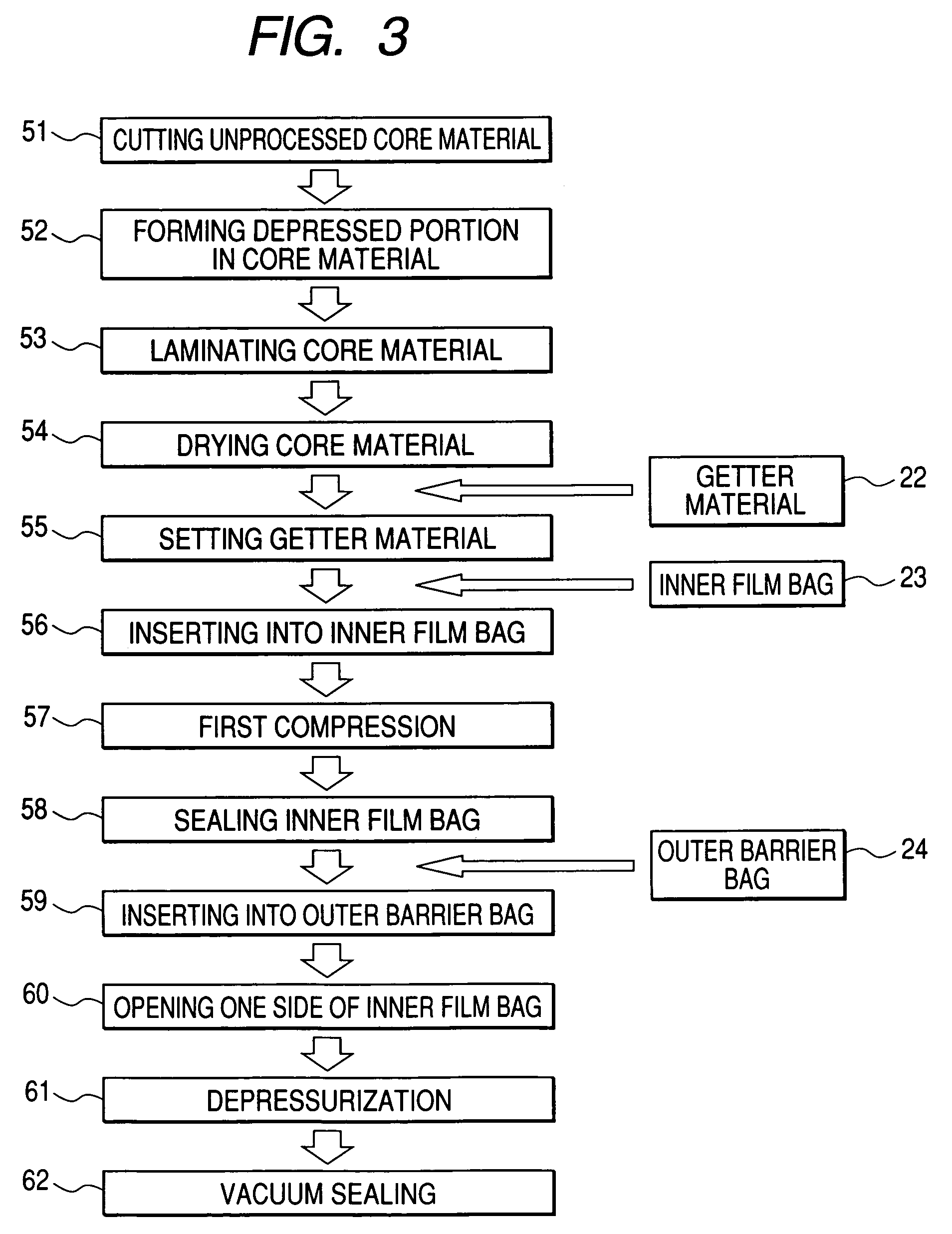Vacuum insulation panel
a technology of vacuum insulation and vacuum panel, which is applied in the direction of domestic cooling apparatus, lighting and heating apparatus, furniture parts, etc., can solve the problems of not being able to allow, and achieve the effects of improving overall production efficiency, facilitating storage, and increasing work process flexibility
- Summary
- Abstract
- Description
- Claims
- Application Information
AI Technical Summary
Benefits of technology
Problems solved by technology
Method used
Image
Examples
first embodiment
[0036]An embodiment of the present invention will be described in the following with reference to drawings. FIG. 1 is a vertical sectional view of principal parts of a refrigerator according to an embodiment of the present invention. FIG. 2 is an explanatory cross-sectional view of a vacuum insulation panel according to a first embodiment of the present invention. As shown in FIG. 1, a frame 12 of the refrigerator is provided with plural doors 13 which can open and close openings of the frame 12. In the frame 12, there are a chill compartment 14a, a vegetable compartment 14b, an ice compartment 15a, and a freezer compartment 15b. An insulation wall 12a of the frame 12 of the refrigerator is provided with vacuum insulation panels 20 being described later. The vacuum insulation panels 20 are set in space formed between an outer plate 12e and an inner plate 12f of the frame 12. In the space, they are disposed toward the outer plate 12e or toward the inner plate 12f. A foam insulation 1...
second embodiment
[0052]Next a second embodiment of the present invention will be explained with reference to FIGS. 5A to 5C. FIGS. 5A to 5C are explanatory diagrams showing core material processing according to the second embodiment of the present invention. FIG. 5A is a diagram for explaining first processing. FIG. 5B is a diagram for explaining second processing performed on the core material coming through the first processing shown in FIG. 5A. FIG. 5C is a diagram for explaining third processing performed on the core material coming through the second processing shown in FIG. 5B. It is a perspective view of a core material itself having undergone first compression, as being described later, in a process equivalent to the one illustrated in FIG. 4C. First, referring to FIG. 5A, reference numerals 21d, 21e, and 21f represent three layers of inorganic fiber core material provided with air circulation, with each layer shaped in a prescribed size and the three layers laminated as shown. The inorganic...
third embodiment
[0060]Next, a third embodiment of the present invention will be explained with reference to FIGS. 6A to 6C. FIGS. 6A to 6C are explanatory diagrams showing core material and inner film bag processing according the third embodiment of the present invention. This embodiment is an example in which the step 56 for insertion into an inner film bag, the step 57 for first compression and the step 58 for sealing the inner film bag are combined.
[0061]An inorganic fiber assembly 21′ to be made a core of a vacuum insulation panel is carried by a conveyor 33′ in a state of being placed between an upper portion and a lower portion of the conveyer. The distance between the upper portion and the lower portion of the conveyor 33′ is greater on the upstream side than on the downstream side of the conveyer. The inorganic fiber assembly 21′ is, therefore, caused to be vertically compressed while being carried by the conveyor 33′. When the inorganic fiber assembly 21′ carried in the direction shown by ...
PUM
 Login to View More
Login to View More Abstract
Description
Claims
Application Information
 Login to View More
Login to View More - R&D
- Intellectual Property
- Life Sciences
- Materials
- Tech Scout
- Unparalleled Data Quality
- Higher Quality Content
- 60% Fewer Hallucinations
Browse by: Latest US Patents, China's latest patents, Technical Efficacy Thesaurus, Application Domain, Technology Topic, Popular Technical Reports.
© 2025 PatSnap. All rights reserved.Legal|Privacy policy|Modern Slavery Act Transparency Statement|Sitemap|About US| Contact US: help@patsnap.com



